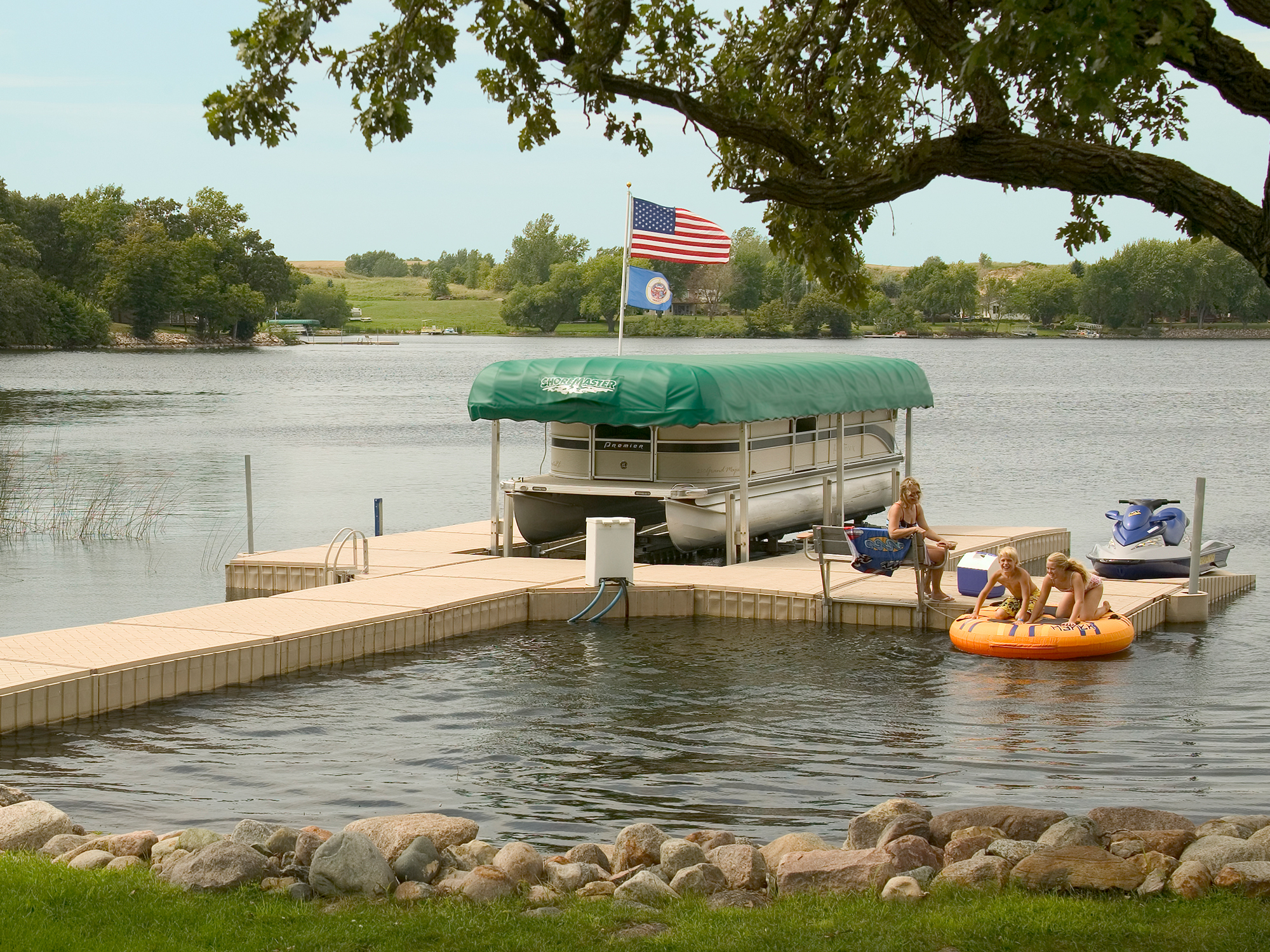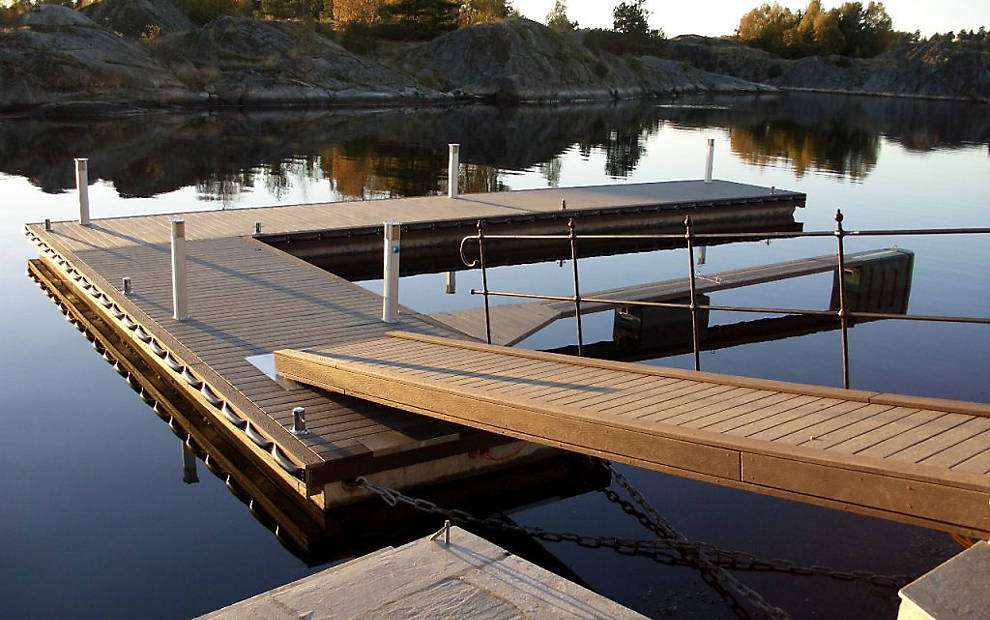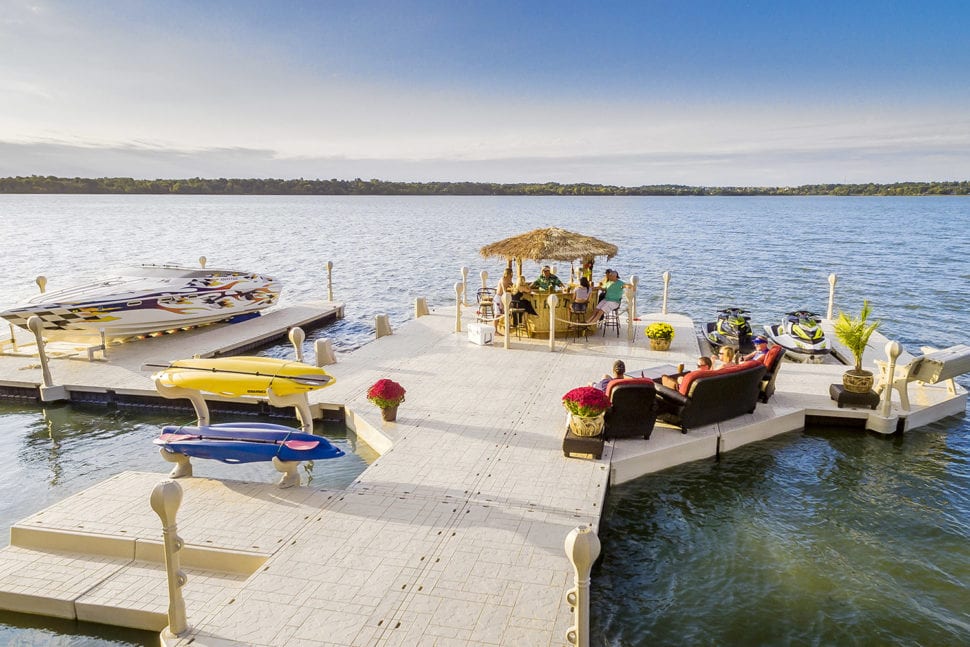The Ultimate Guide to Picking the very best Floating Docks
Choosing the suitable floating dock needs an extensive understanding of various components that influence both efficiency and longevity. Aspects such as dock types, products, and crucial features substantially impact your decision-making process.
Recognizing Floating Dock Kind
When selecting a drifting dock, it is essential to comprehend the different types offered, as each offers unique purposes and applications. Floating docks largely come under three categories: modular, stationary, and pontoon docks.
Modular docks are made up of specific areas that can be easily constructed or reconfigured, making them perfect for changing water levels and varied usages, such as entertainment tasks or industrial operations. Their versatility permits personalization based on specific needs.

Pontoon docks are defined by their resilient structure, typically composed of multiple pontoons that provide security and assistance. They are especially appropriate for larger vessels and are typically used in marinas or for waterfront homes. Comprehending these types aids in selecting one of the most suitable floating dock to fulfill particular demands, guaranteeing optimum performance and safety and security.
Key Products for Resilience
Picking the right products for floating docks considerably influences their durability and long life. The most typical products consist of timber, plastic, metal, and composite materials, each offering distinctive advantages and constraints.
Wood, frequently preferred for its visual appeal, needs normal maintenance to endure moisture and decay. Pressure-treated lumber can improve resistance to rot, however it might still be susceptible to insects and weathering.

Plastic docks, made of high-density polyethylene (HDPE), are immune to deterioration, UV radiation, and effect, making them a preferred selection for coastal settings. Their light-weight nature likewise assists in easy installment and relocation.
Steel docks, generally created from aluminum or galvanized steel, provide phenomenal strength and toughness. They are resistant to rust, especially when dealt with, but might require added insulation to avoid warmth accumulation in warm climates.
Composite products, incorporating wood fibers and plastics, supply the benefits of both timber and plastic, resisting wetness and fading while calling for very little upkeep. - floating dock services
Ultimately, the option of products should line up with ecological conditions, meant usage, and maintenance choices to make certain the floating dock stays useful and visually pleasing with time.
Vital Attributes to Consider
While the option of products is essential, taking into consideration important attributes for floating docks is just as essential to guarantee optimum efficiency and user satisfaction. One essential attribute to examine is the dock's buoyancy capability, which determines just how much weight it can sustain without submerging. floating dock company. This is essential for suiting boats, individual watercraft, and also recreational activities
In addition, portability is a substantial consideration. Relying on your requirements, you might want a dock that is very easy to deliver and disassemble, specifically if you plan to move it seasonally. Security is another necessary feature; a well-designed floating dock ought to decrease motion caused by wind and water currents, offering a safe and secure system for users.
Safety and security functions, such as non-slip surface areas and rounded edges, are discover here likewise critical to stop crashes, particularly in wet conditions. Moreover, take into consideration the schedule of devices, such as bumpers, cleats, and ladders, which can improve the capability of your dock.
Installment and Upkeep Tips
Establishing and keeping a floating dock requires cautious preparation and interest to information to ensure its durability and optimal performance. Begin by selecting an ideal location that lessens exposure to solid currents and waves, which can cause damage. Guarantee that the water deepness is adequate for the dock's elevation and that it is secured securely to stop motion.
Throughout installation, adhere to the producer's standards closely, as inappropriate setting up can compromise stability. Usage premium products immune to deterioration, such as light weight aluminum or dealt with wood, to improve sturdiness. link Frequently evaluate all elements, consisting of floats, adapters, and anchoring systems, for indicators of damage or wear.
Upkeep is important for extending the life of your dock. Tidy the surfaces occasionally to avoid algae buildup and look for any type of loose installations that may call for tightening. Ensure they continue to be totally free and intact from leaks if your dock uses flotation tools. Additionally, think about using safety coverings to wood parts to decrease weathering results. By adhering to these setup and upkeep suggestions, you can take pleasure in a useful and reputable floating dock for years to find.
Budgeting for Your Dock
Budgeting for your dock is a vital action that can dramatically influence your total satisfaction and investment in a beachfront building. Establishing a clear budget helps you navigate the various options available and guarantees you make educated choices that straighten with your financial abilities.
Begin by establishing the size and layout of the dock you need, as these elements will greatly affect the expense. Floating docks can differ substantially in price, relying on materials, buoyancy, and attributes like ramps and devices. Study different manufacturers and distributors to compare rates and comprehend the marketplace see page value.
Along with initial expenses, consider continuous expenses such as maintenance, insurance, and prospective repairs. Designate funds for these reoccuring expenses to prevent surprises down the line. It's likewise sensible to allocate any type of necessary licenses or inspections, which may be called for by local guidelines.
Lastly, keep in mind the possible return on investment. A well-planned dock can boost your residential property's value and appeal, supplying a favorable financial effect in the long-term. By budgeting effectively, you can guarantee that your dock fulfills your needs without compromising your monetary security.
Final Thought
Finally, picking the ideal floating dock demands a comprehensive examination of numerous factors, including dock types, materials, vital attributes, and installment procedures. Focusing on durability and compliance with local policies eventually improves capability and home worth. Cautious factor to consider of budgetary restraints will certainly even more make sure an audio financial investment. By adhering to these guidelines, people can make informed decisions that promote long-term fulfillment and functionality in aquatic settings.

While the selection of materials is critical, thinking about essential functions for floating docks is equally crucial to make certain optimal performance and individual contentment.Establishing up and preserving a drifting dock calls for careful planning and interest to information to guarantee its longevity and ideal efficiency. Floating docks can vary dramatically in price, depending on materials, buoyancy, and functions like ramps and devices.In verdict, selecting the optimal floating dock demands a thorough evaluation of various factors, including dock types, products, essential features, and installment procedures.